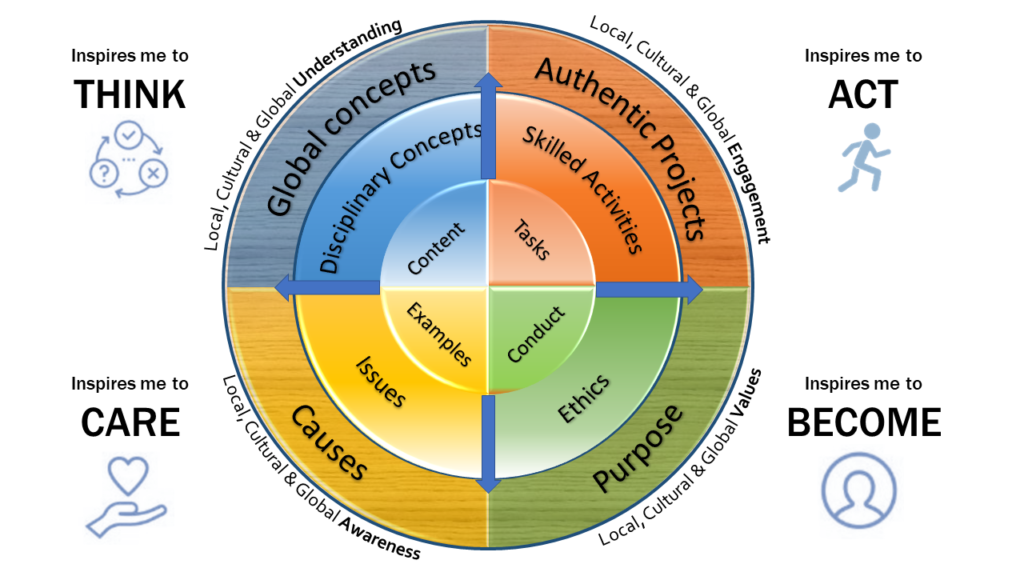There is much discussion currently about the role of education in the current VUCA (volatile, uncertain, complex, ambiguous) global environment. There are calls to adapt away from the factory model of education. There is a need to pull away from content-centric models of learning transfer because the argument goes, the world of work is changing and the demand is for skills.
Well I agree, to a point, there is a need to pull away from content only but not for the purpose that the World Economic Forum gives. I find it deeply ironic that the call for the dissolution of the factory model is down to the fact that the demands in the factory have changed.
The need for change is a more basic need. It comes down to the question of what are we learning for. Are we teaching for compliance, with fixed curricula and ranked success performance on a standard measure? Or are we teaching for individuals who will question the status quo?
We want a generation who will hold their politicians, their economic systems, the privileged and the powerful to account. We want a generation who will care beyond individualism and for the system as a whole. We want a generation who are clear on their priorities and will act to realise them. Don’t we?
So in response to the call to revolutionise education for a new economy, I would argue that we need to learn in order to become better humans who make the world a better place. Period.
‘I find it deeply ironic that the call for the dissolution of the factory model is down to the fact that the demands in the factory have changed. We need to learn in order to become better humans who make the world a better place.’
To that end, I have designed a model that is independent of the curriculum. It asks us to evaluate what we are delivering and then to consider four possible areas of stretch that can help this curriculum to reach this goal.
For those who follow IB curricula, you will notice that the end product of these stretch areas is an aspect of International Mindedness. This is the stated aim of IB education:
‘The aim of all IB programmes is to develop internationally minded people who recognise their common humanity and shared guardianship of the planet. Central to this aim is international-mindedness’
(What is an IB education, 2017, p. 10).
This model is inspired by that call, but it is not exclusive to the IB. It seeks to articulate what that call actually means, using four inspirations:
- To Think in a way that leads to Global understanding
- To Act in a way that leads to Global engagement
- To Become such that we pursue Global values
- To Care for causes that arise from Global awareness

The model proposes that we begin at the centre and move outwards. Each layer is essential to the creation of the next.
Inspiring me to Think
Traditional curricula have tended to focus on learning content, increasingly we are becoming aware of the power of being able to think about concepts, that this content builds towards. I want to suggest that global concepts lead us to see things from multiple (disciplinary and personal) perspectives. This is powerful and helps students develop multifaceted understandings of the world, which is essential for interdisciplinary approaches to problems but also helps prevent dogmatism which is an enemy of more global understandings.
Inspiring me to Care
We only learn about what we care about. Inspiring people to care about something beyond themselves is a core responsibility of the school. We sometimes sprinkle examples into our teaching or link these to bigger issues to show that it matters to the world. What we are not so good at is helping this matter to the individual. I believe we should be enabling kids to find a cause that they believe in and care about and encouraging this.
Inspiring me to Act
We teach a unit and move on. So often we leave our cares behind. What if learning what was designed such that it inspired students to go be different? Do we give them the freedom and support to create a project and try to make an impact with it? Are we as educators fearful of mini Greta Thurnberg’s arising or are we actively encouraging and incubating them?
Inspiring to Become
Perhaps this is the most important. Do we teach for knowledge transfer, for a test, or for grades? Or do we teach to shape the young learners we are privileged to have in front of us? Do we teach in ways that model moral and ethical behaviour? Do we go beyond that and inspire them to discover what values they have inside themselves and convert these values into a purpose?
Your turn
What do you think of this model? Could this reset the agenda for why we educate? Not to build up a new generation of workers but a new generation of citizens, thoughtful, caring, prepared to act because they have a purpose!
#EducationRevolution #NewEconomyLearning #BetterHumansBetterWorld #ThinkActBecomeCare #GlobalUnderstanding #InspireCaring #TakeActionNow #EducationForCitizenship #PurposefulEducation #FutureGeneration
Acknowledgements
The infographic ‘Model of a Purpose Driven Curriculum’ was designed by Adrian von Wrede-Jervis , and this article was written in 2019. A further link is X (formerly Twitter) @AdrianvWJ.




